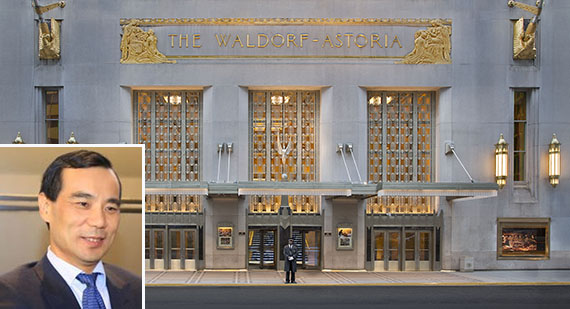Trending
Worries grow over Chinese insurers’ financial health
Firms like Anbang rely on short-term deposits, but invest long-term

As China’s insurance giants grow and snap up properties in New York and elsewhere, observers and regulators are increasingly worried about the industry’s reliance on risky short-term deposits.
“These strategies can seriously threaten the solvency of life insurance companies if the investment bets go the wrong way,” Christie Lee, an analyst at A.M. Best, told the Wall Street Journal.
The Chinese insurance industry’s income from premiums rose to $370 billion in 2015, and is expected to climb to $700 billion by 2020. Some of the industry’s capital has flowed into U.S. real estate.
Anbang Insurance Group [TRDataCustom] bought the Waldorf Astoria hotel in New York for $1.95 billion in 2015 and is reportedly in talks to buy a stake in Kushner’s 666 Fifth Avenue. Anbang also acquired Strategic Hotels & Resorts for $6.5 billion. Meanwhile, insurer Ping An said last year that it plans to invest billions in U.S. real estate.
While these real estate buys are illiquid, long-term investments, Chinese insurers increasingly rely on raising money by offering short-term, high-yield products. This mismatch worries analysts, because it could make it hard for insurers to repay their investors if, say, most of them decided to withdraw their deposits all at once.
The short-term products in question are called universal life. Unlike conventional life insurance policies, investors typically agree to deposit money for a mere two or three years in return for higher interest rates than those offered on bank deposits. These products often include some token insurance aspect (for example a payout in the event of a plane crash).
Last month, Chinese regulators announced penalties for some insurers and vowed to tighten regulations to discourage risk-taking. [WSJ] — Konrad Putzier




